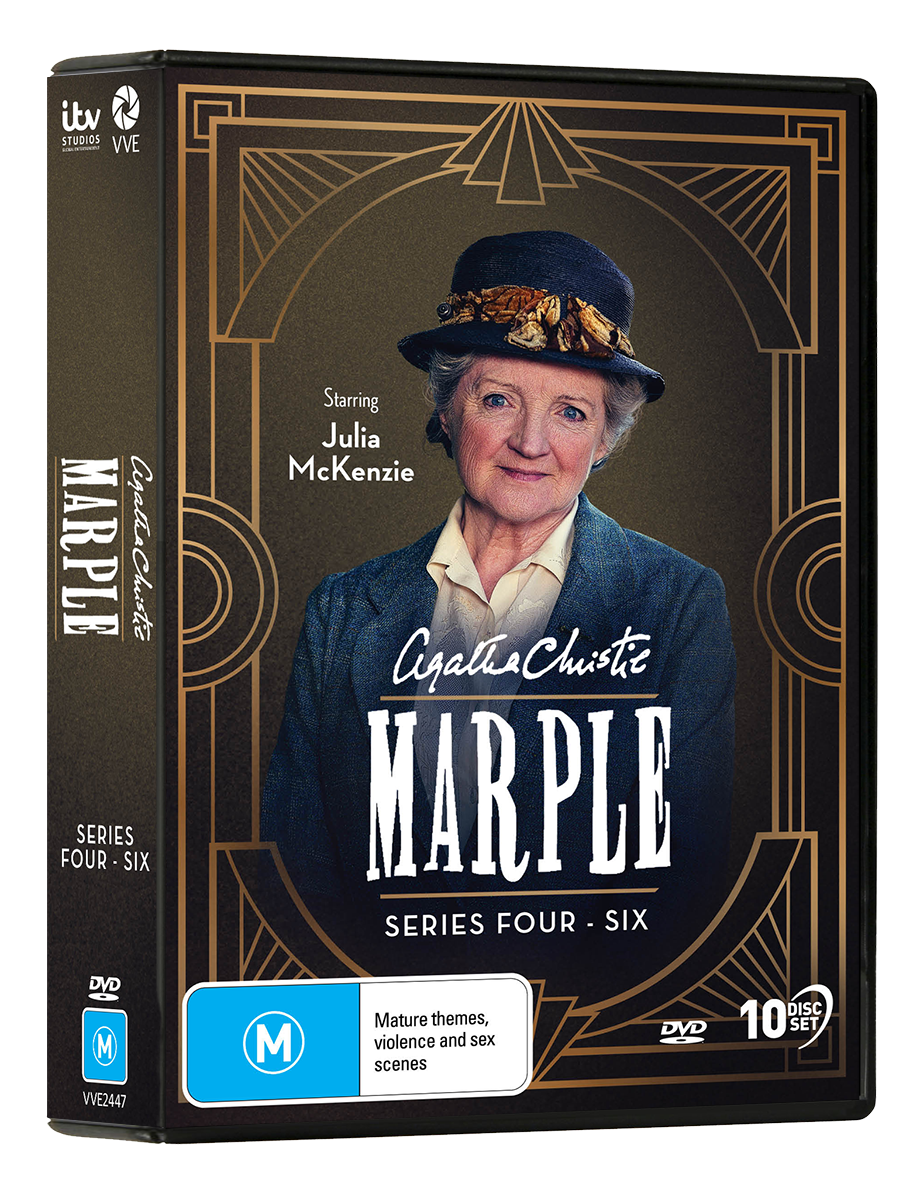

In America shows such as The Golden Girls and Murder She Wrote were seen to be indicative of a ‘true golden age’ of representation of older characters: according to Newsweek, ‘uddenly the elderly are finding themselves portrayed as intelligent, attractive, vital-even, astonishingly enough, sexy and hip’. (2000: 458) Britain in the late 1980s was a contradictory society in terms of attitudes to ageing, not least because the two most powerful positions were occupied by ageing women, the Queen and Margaret Thatcher, both of whom were entering their sixties during the decade, but were rarely referred to as ‘old,’ according to Thane.

Pat Thane observed of images of old people that at any one time there are many competing representations of both male and female ageing, but higher status and respect was accorded in line with ‘material or cultural power or … through evident wisdom or past or present services to the community’.
#AGATHA CHRISTIE MARPLE HOW TO#
The Marple series was commissioned within the context of a discernible heightening of awareness and concerns about ageing, allowing for the possibility of an elderly female detective as a prime time protagonist, especially one who is wise, middle-class, community-minded, and does not challenge accepted notions of how to age ‘well’. I will explore the wider context of Hickson’s performance, looking at the specificities of ageing femininities and issues regarding adaptations of Marple, before focusing on the first BBC adaptation, The Body in the Library (1984). Hickson starred in twelve feature length adaptations over eight years, being eighty-six in her final appearance in The Mirror Crack’d From Side to Side. This article sets out to explore the ambiguities inherent in the representation of an iconic female detective, with particular regard to the nuanced construction of ageing femininity which defines the character of Hickson’s version of Miss Marple. Hickson’s Marple is indicative of a wider cultural imperative to reclaim a mythical golden age of Englishness, wherein the ageing single woman is rendered ‘other’, restoring order within a community with uncomplicated social hierarchies and moral codes, in contrast to the complexities of the 1980s. This was a Marple for Thatcher’s Britain, articulating an Englishness which was inscribed by an iteration of female ageing which evoked a nostalgia for traditional values, set in the early 1950s. Hickson’s performance was true to Christie’s Marple in perpetuating the stereotype of old age equating with the gaining of wisdom, highlighting Marple’s role as a moral guardian and a nanny-like figure supervising the community from the sidelines. The BBC adaptation rendered Marple a nostalgic articulation of Englishness which draws on the figuration of the village spinster, an apocryphal imagining of conservative middle-class femininity wherein the attributes of ageing are foregrounded. My intent is to explore how the this iteration of Marple was animated by a desire to be true to the books, and the legacy of Christie, who had been unhappy with previous attempts to bring her work to the screen. Hickson’s performance bridged the gap between past and present, her career being paralleled by Marple’s, stretching back to the 1920s. The adaptation was true to the tradition of female detective fiction of the interwar years, of which Christie’s Marple has been the most enduring template for female agency. The BBC series was a landmark in placing female ageing at the centre of the narrative, yet constructing a model for ageing which was rooted in the past.

(Younger 1998) Hickson’s performance has subsequently been judged to be truest to the fictional character by many fans and critics, and was endorsed by both the Queen and Margaret Thatcher. Christie wrote to Hickson in 1946 after seeing her performance in a West End production of Appointment with Fear in which Hickson acted the part of a spinster, saying, ‘I hope that one day you will play my dear Miss Marple’. Here, I consider how the characterisation of Miss Marple was inflected by the political and cultural commitment to nostalgia and a sense of tradition, led by a Conservative government hostile to the BBC. Joan Hickson’s casting as Miss Marple in the BBC adaptations broadcast between 19 was endorsed by Agatha Christie herself, albeit forty years before Hickson actually played the role.


 0 kommentar(er)
0 kommentar(er)
